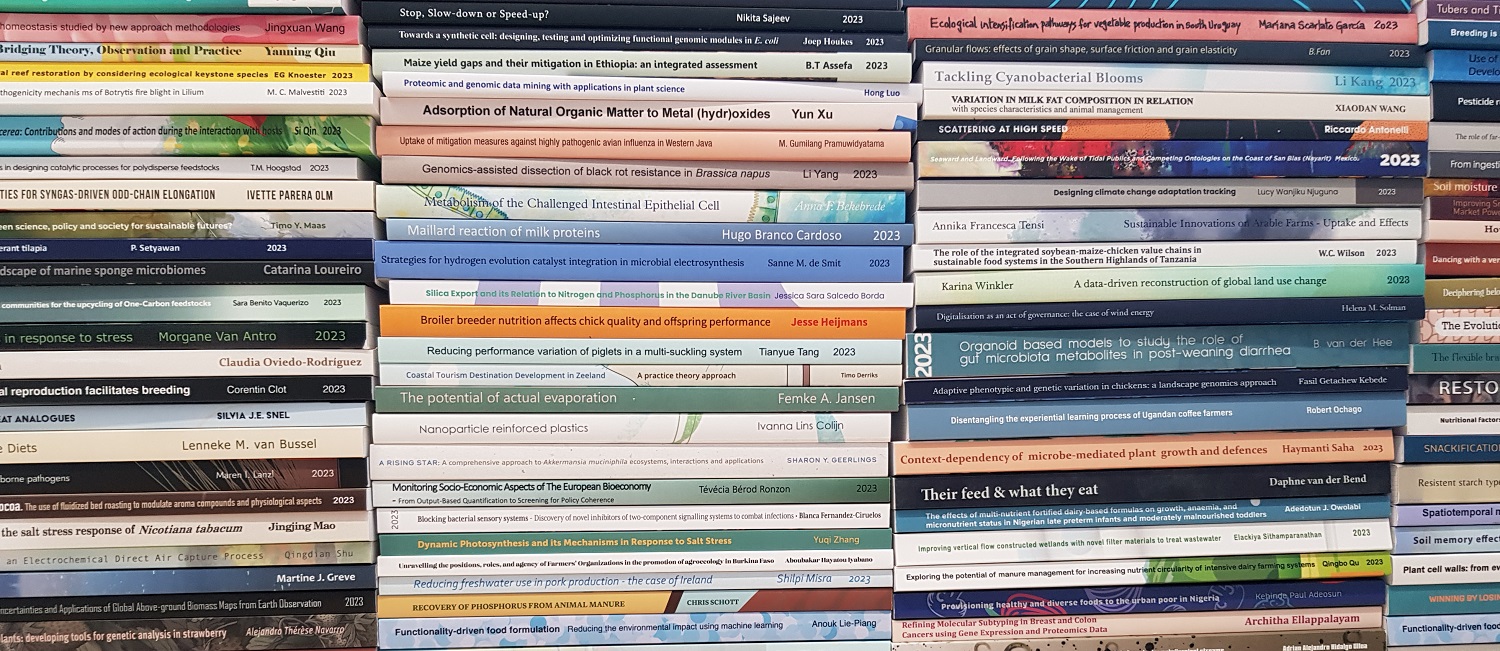The year 2023 will close with no less than 356 PhD degrees having been awarded. A new record after last year. A year ago, the total amounted to 321 PhD degrees, which was already a record high compared to the pre-pandemic numbers that oscillated around 280-300, with a record of 305 in 2015. That record was shattered last year. The number of PhDs has now increased by one-third within a decade.
Over 400 aspiring doctors have started their PhD each year since 2015, and the number is still increasing. ‘An annual increase is expected’, says Saskia de Boer of the PhD office. ‘But this number of 359 PhDs surpasses our annual prognosis.’ The PhD office believes this is a residue effect of the COVID pandemic.
Delayed
In the COVID years of 2020 and 2021, fewer PhD degrees were obtained than was to be expected based on the influx numbers, says De Boer. These delayed PhD trajectories are currently being completed. This matches the personal experience of Professor Hauke Smidt (Microbiology), who delivered a record number of eight doctorates this year.
The cause is found in the backlog that results from covid-19 related delays in research
Hauke Smidt, personal professor of microbiology
‘That certainly is a lot’, Smidt says. ‘The cause is found in the backlog that results from COVID-19-related delays in research. Many of our delayed PhD candidates have really put in effort this year. An above-average number of PhD graduations is also expected for next year.’
Internationals
The 2023 numbers show the usual pattern. Internationals are the largest group, with 68 per cent. That percentage is significantly higher than the national average of 55 per cent. Women form a small majority at 52 per cent. That trend started a few years ago and is also apparent at a national level.
To prevent discussions, the dissertation is frequently subjected to a six-to-twelve-month embargo
Saskia de Boer, PhD Office
A noteworthy fact is that many dissertations are not yet accessible to the general public. One-third of the 359 dissertations are under embargo and cannot be viewed online through WUR Library, despite the defence being a public affair. Saskia de Boer says this is the result of the Open Access policy.
Open Access
‘If papers from the dissertation are yet to be published, a journal may object to online access’, she explains. ‘To prevent discussions, the dissertation is frequently subjected to a six-to-twelve-month embargo.’ The peculiar effect is that Open Access thus results in limited access.

 Photo Roelof Kleis
Photo Roelof Kleis 

